Covid 'more damaging' to Wales economy than pit closures
- Published
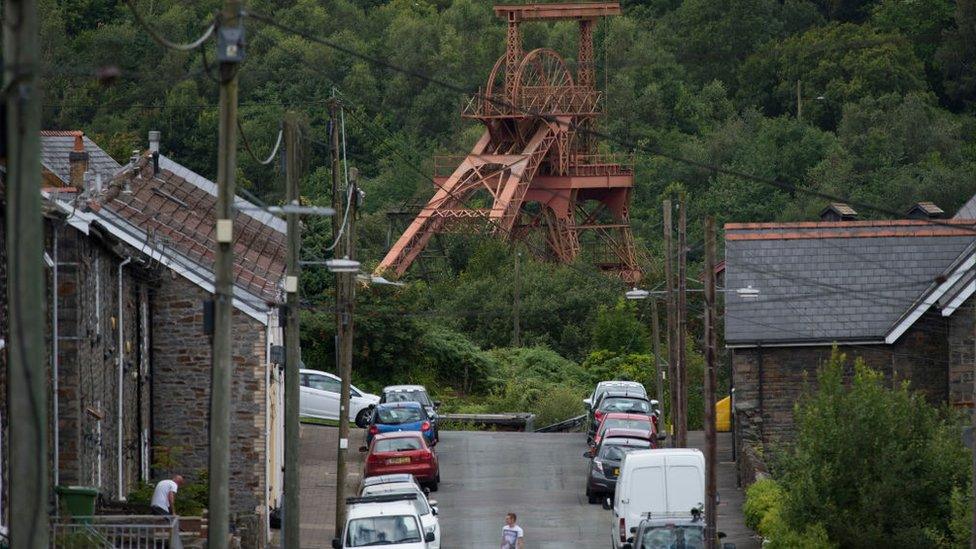
Unemployment following the mine closures was largely confined to communities in the south Wales valleys, Baroness Debbie Wilcox says
The impact of the coronavirus pandemic on communities in Wales will be on a "different scale" to that seen after the coal and steel industries collapsed in the 1980s, a peer has said.
Baroness Debbie Wilcox, who once led Newport council, said its effect would be more wide-ranging and last longer.
Her warning comes as unemployment in Wales saw the highest rise in the UK.
One bar owner in Newport said it had been the most difficult period of his 45 years in the business.
Baroness Wilcox, former leader of the Welsh Local Government Association and a Labour life peer in the House of Lords, has first-hand experience of the economic hardship felt in coal-mining communities in the 1980s.
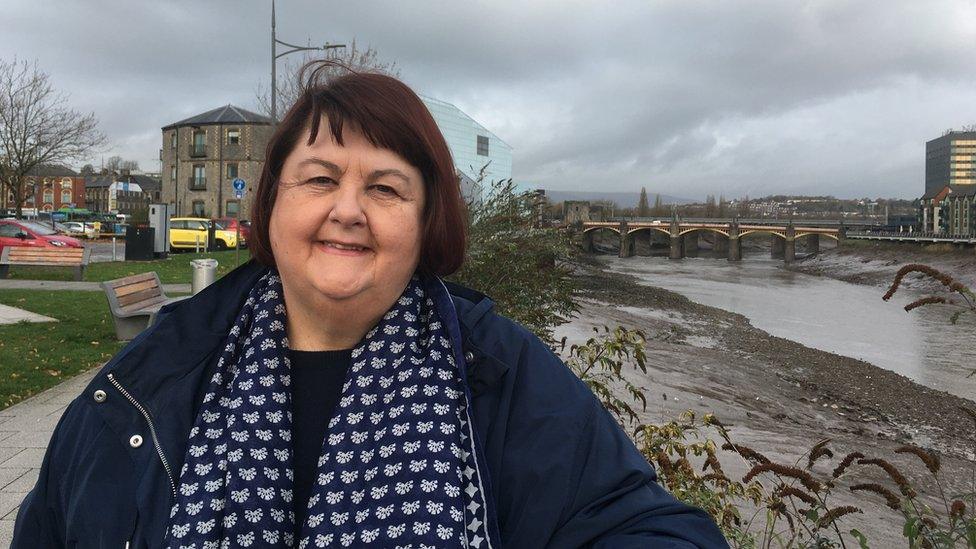
Baroness Debbie Wilcox says she "remembers the anguish" of the 1980s
"My stepfather was a miner at Ty Mawr colliery and I was part of Maerdy women's support group, and by goodness we thought we had it bad then," she explained.
"I remember the anguish of those times - but this is on a different scale."
She said communities in the south Wales valleys had never fully recovered from the "destruction" of the coal industry.
"But this [pandemic] affects everyone," she added. "No job, no industry, none of us are exempt from it, therefore it is bound to have a longer lasting effect."
Baroness Wilcox said it was important to invest in young people and called on communities to pull together.
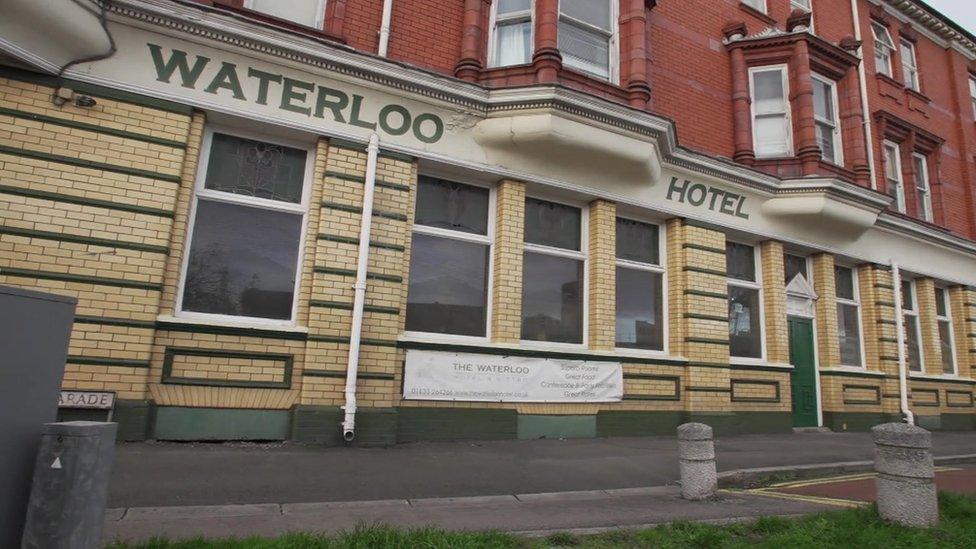
The Waterloo Hotel in Newport has been closed since March
The Waterloo Hotel, near Newport's Transporter Bridge, used to be packed full of docks workers and steelworkers, and once boasted the longest bar in the UK.
It is not full of dockers any more, Bob Evans bought the bar 14 years ago and developed it into a vibrant bistro and boutique hotel.
But it has been closed since March and Mr Evans decided against reopening in the summer because it would not have been profitable, and is now selling up.
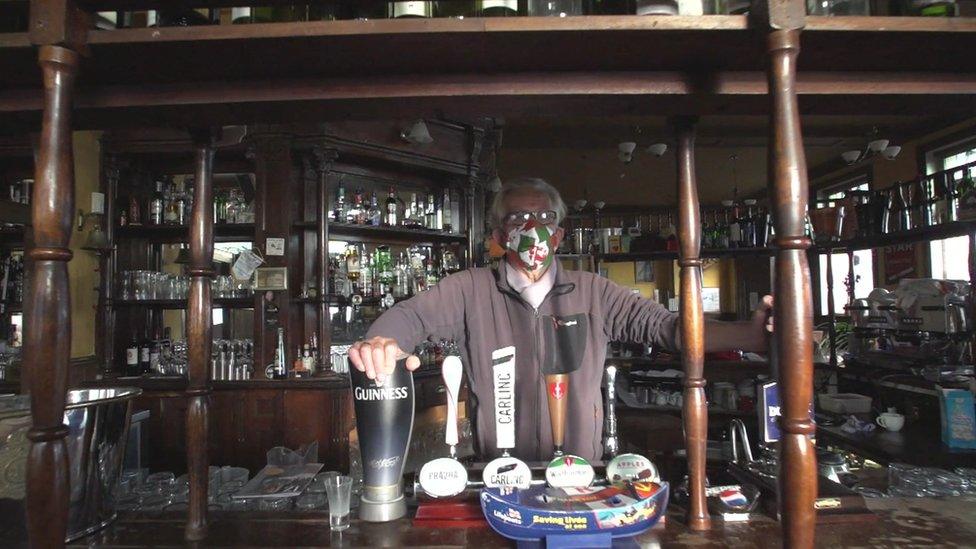
Bob Evans has worked in hospitality for 45 years but says he has never known a time like it
"We spent so much money here and built up the trade. So to have to close your doors through no fault of your own - I can't tell you, it was awful," Mr Evans said.
Mr Evans, who has worked in hospitality for 45 years, said he had never known a time like it.
"This has been the worst, without a doubt - I have never had to shut my doors," he said.
"It is a total disaster and there are lots of people who won't come out of this."
The latest official figures show unemployment in Wales has risen to 4.6% - slightly lower than the UK average.
But more than 20,000 people have left pay rolls since February, not including many who are self-employed.
The figures also show unemployment rose between July and September when businesses were allowed to open, the Eat Out to Help Out scheme was operating and tourists flooded to Wales for holidays because of restrictions on travelling abroad.
One reason for this could be redundancies which had been announced earlier in the year but were delayed. This was the case particularly in the aerospace sector, which is highly important to the Welsh economy.
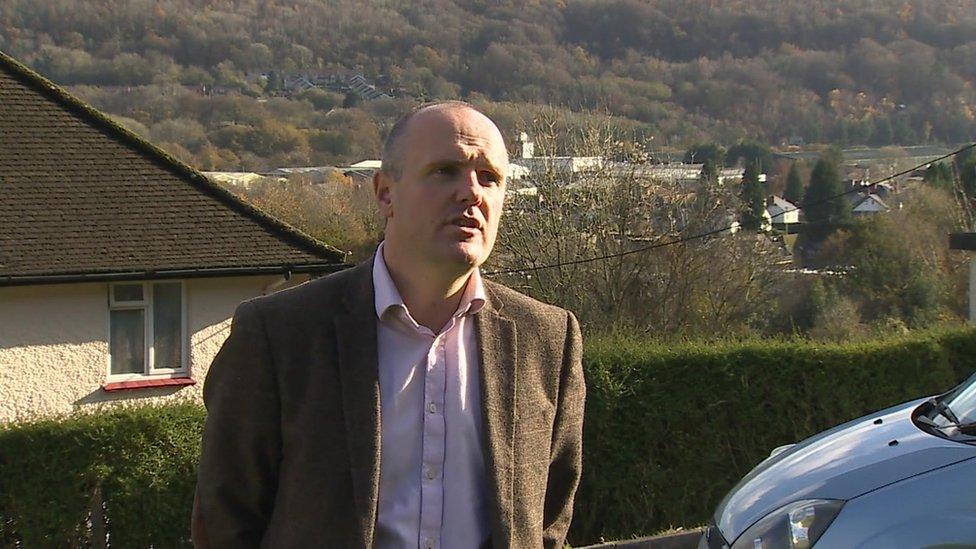
Former head of employment statistics at the ONS Jamie Jenkins says furlough might have "masked" the scale of joblessness in Wales
Many employers had already finalised redundancy agreements before the UK government extended the the furlough scheme, according to the former head of employment statistics at the ONS.
Jamie Jenkins explained: "It could be that the furlough scheme has masked the true unemployment problem we have had in Wales during the summer months.
"As that came to an end [in October] it was announced that it was extended, but it was probably too late for many people."
- Published30 September 2021
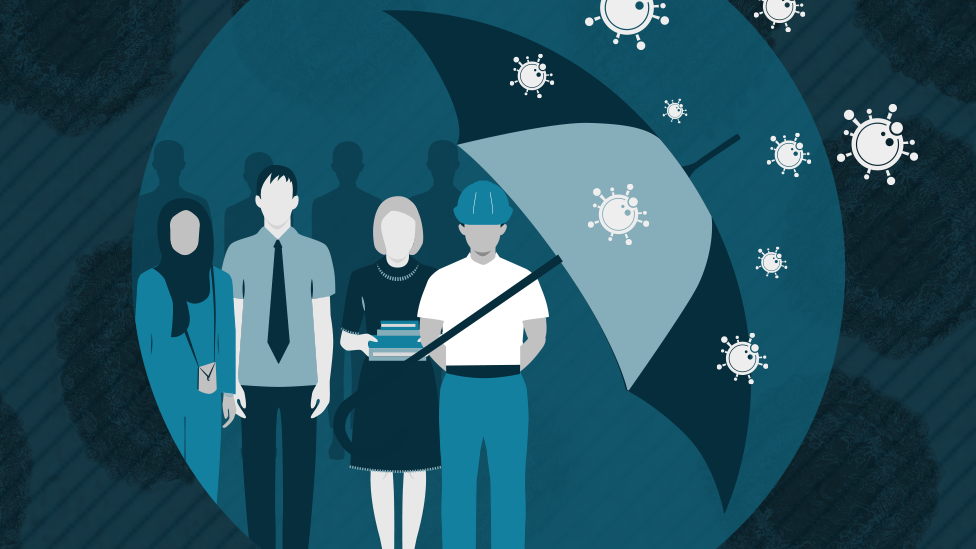
- Published10 November 2020
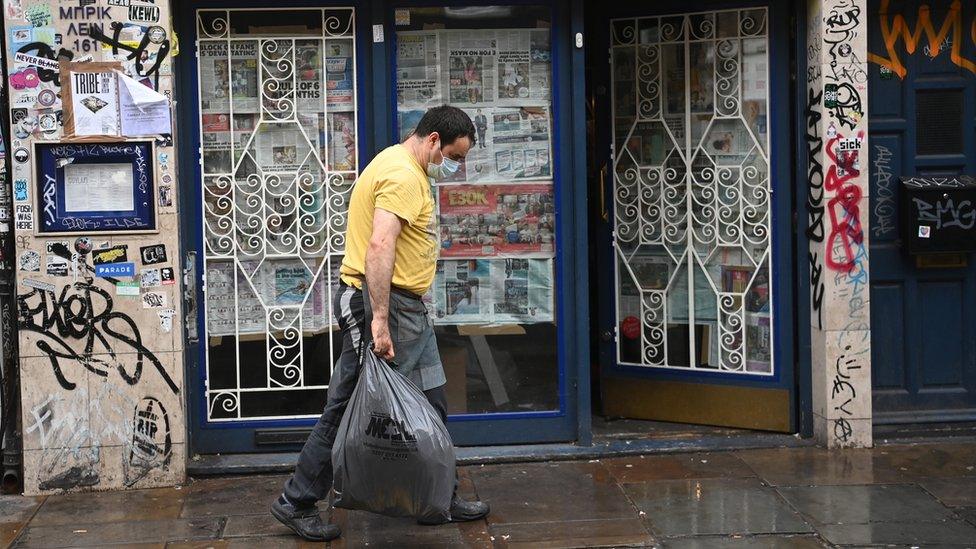
- Published12 August 2020
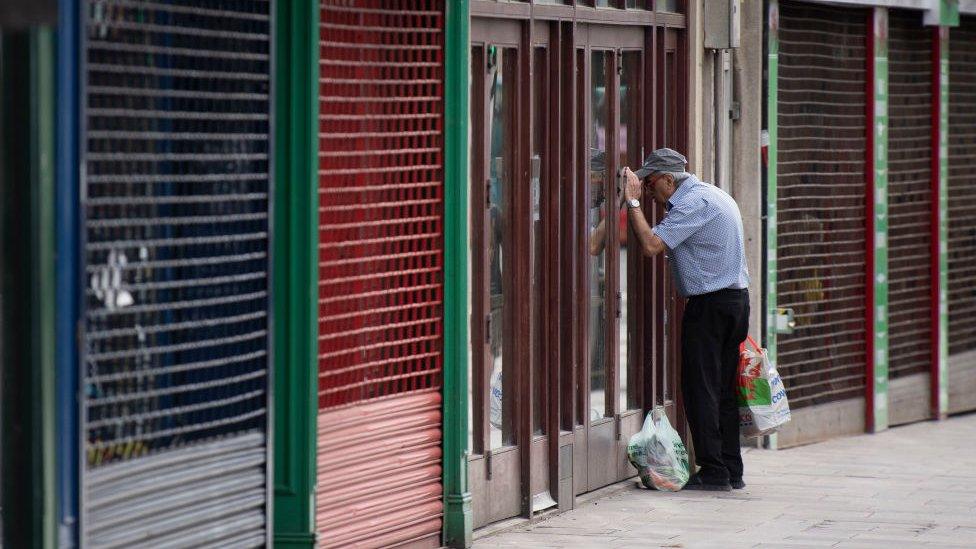
- Published11 August 2020
